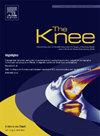Exploring BMP9 and integrin alpha 10 as novel chondrogenic markers in human bone marrow-derived mesenchymal stem cells, chondroprogenitors, and chondrocytes: an immunohistochemistry study
IF 2
4区 医学
Q3 ORTHOPEDICS
引用次数: 0
Abstract
Background
Evaluating cartilage repair potential involves subjecting the cellular 3D pellets to chondrogenic differentiation and assessing their differentiation degree using immunohistochemical (IHC) studies. Collagen type II IHC staining stands as a key marker to evaluate mature chondrogenesis, but its non-uniform staining confounded by incomplete differentiation necessitates exploring alternative markers. This study explored the potential of BMP9 and Integrin Alpha 10 as novel early-stage chondrogenic markers in human bone marrow-derived mesenchymal stem cells (BM-MSCs), fibronectin assay derived chondroprogenitors (FAA-CPs), migratory chondroprogenitors (MCPs) and chondrocytes following differentiation.
Methods
Three human articular cartilage samples and bone marrow aspirate from osteoarthritis patients were collected to isolate the BM-MSCs, FAA-CPs, MCPs and chondrocytes. Following their molecular characterization, differentiation assays were conducted followed by their confirmatory staining and IHC for BMP9 and Integrin alpha10.
Result
IHC analysis collagen type II revealed positive with a non-uniform pattern of expression. The same sections subjected to integrin alpha 10 IHC analysis exhibited a greater proportion of uptake and a more uniform distribution throughout the differentiated pellet, addressing a key limitation observed with ECM and collagen staining techniques. The spatial homogeneity observed could be attributed to the functional relevance of integrin alpha 10, a Collagen type II receptor which mediates cell-matrix interactions and is specifically expressed in chondrocytes, further underscoring its potential as an alternative marker. However, BMP9 did not display robust staining.
Conclusion
Integrin alpha 10 may serve as a valuable alternative or complementary marker to collagen type II for assessing chondrogenic differentiation, offering a more consistent spatial distribution.
在人骨髓间充质干细胞、软骨祖细胞和软骨细胞中探索BMP9和整合素- 10作为新的软骨形成标志物:一项免疫组织化学研究。
背景:评估软骨修复潜力包括将细胞三维微球进行软骨分化,并使用免疫组织化学(IHC)研究评估其分化程度。II型胶原IHC染色是评估成熟软骨形成的关键标志物,但其不均匀的染色与不完全分化相混淆,需要探索其他标志物。本研究探讨了BMP9和整合素α 10在人骨髓间充质干细胞(bmscs)、纤维连接蛋白测定衍生的软骨祖细胞(FAA-CPs)、迁移软骨祖细胞(MCPs)和分化后的软骨细胞中作为新型早期软骨形成标志物的潜力。方法:收集3例人关节软骨标本和骨关节炎患者骨髓抽液,分离BM-MSCs、fa - cps、MCPs和软骨细胞。在进行分子表征后,进行分化实验,然后进行BMP9和Integrin alpha10的验证性染色和免疫组化。结果:免疫组化分析ⅱ型胶原呈阳性,表达模式不均匀。整合素α 10免疫组化分析的相同切片显示出更大的摄取比例和更均匀的分布在分化的颗粒中,解决了ECM和胶原染色技术观察到的关键限制。观察到的空间均匀性可能归因于整合素α 10的功能相关性,整合素α 10是一种介导细胞-基质相互作用的胶原II型受体,在软骨细胞中特异性表达,进一步强调了其作为替代标记物的潜力。然而,BMP9没有显示出强烈的染色。结论:整合素α 10可作为II型胶原的一种有价值的替代或补充标记物,用于评估软骨分化,提供更一致的空间分布。
本文章由计算机程序翻译,如有差异,请以英文原文为准。
求助全文
约1分钟内获得全文
求助全文
来源期刊

Knee
医学-外科
CiteScore
3.80
自引率
5.30%
发文量
171
审稿时长
6 months
期刊介绍:
The Knee is an international journal publishing studies on the clinical treatment and fundamental biomechanical characteristics of this joint. The aim of the journal is to provide a vehicle relevant to surgeons, biomedical engineers, imaging specialists, materials scientists, rehabilitation personnel and all those with an interest in the knee.
The topics covered include, but are not limited to:
• Anatomy, physiology, morphology and biochemistry;
• Biomechanical studies;
• Advances in the development of prosthetic, orthotic and augmentation devices;
• Imaging and diagnostic techniques;
• Pathology;
• Trauma;
• Surgery;
• Rehabilitation.
 求助内容:
求助内容: 应助结果提醒方式:
应助结果提醒方式:


